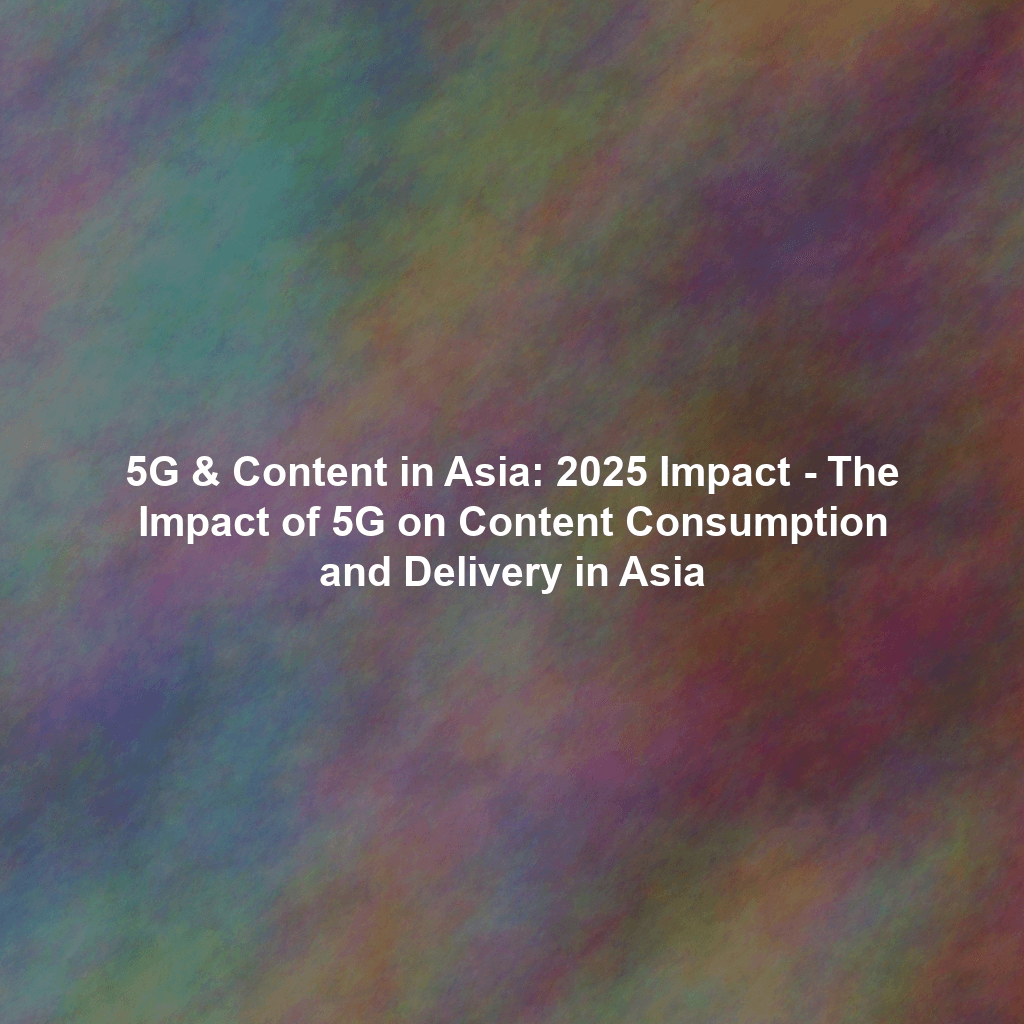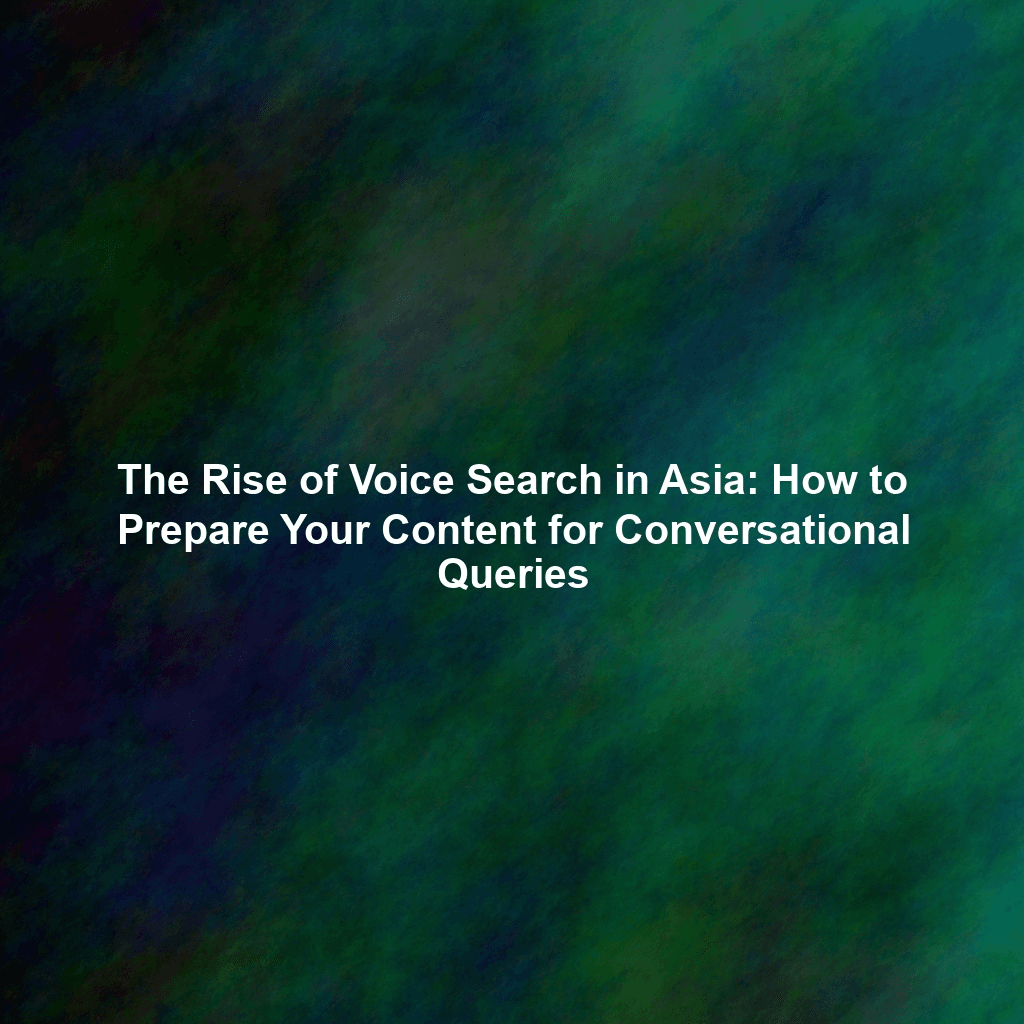Asia is on the cusp of a digital renaissance, powered by the widespread adoption of 5G technology. Forget incremental improvements – we’re talking about a fundamental shift in how content is created, delivered, and consumed. By 2025, 5G’s influence will be so pervasive that content marketing strategies that fail to adapt will be left in the digital dust. This article delves into the profound impact of 5G on Asia’s content landscape, exploring emerging trends, interactive content formats, and the challenges and opportunities that lie ahead for marketers.
The Dawn of Hyper-Connectivity: Understanding 5G’s Impact
5G isn’t just faster 4G; it’s a paradigm shift. Its defining characteristics – ultra-low latency, massive bandwidth, and high connection density – unlock entirely new possibilities. For content marketers in Asia, this translates to:
- Uninterrupted Streaming: Say goodbye to buffering. High-quality video, live streams, and immersive experiences become seamless and readily available to a wider audience.
- Instant Access: Large files, complex graphics, and interactive applications load instantaneously, enhancing user experience and engagement.
- IoT Integration: 5G connects a vast network of devices, creating new avenues for personalized content delivery and data collection. Think personalized ads on smart billboards or interactive shopping experiences through connected appliances.
The Rise of Mobile-First (and Only) Consumers
Asia already boasts a massive mobile-first population. 5G will only solidify this trend. Content consumption will increasingly be driven by smartphones and other mobile devices. This necessitates a laser focus on mobile optimization, not just in terms of responsiveness, but also in designing content specifically for smaller screens and on-the-go consumption. Think bite-sized videos, interactive quizzes, and personalized notifications delivered through mobile apps.
Interactive Content Takes Center Stage
5G’s low latency and high bandwidth make interactive content not just viable, but essential. Static text and images will no longer cut it. Audiences demand engaging, immersive experiences. Expect to see a surge in:
Augmented Reality (AR) Experiences
Imagine trying on clothes virtually through an AR app, or seeing how furniture fits in your living room before you buy it. 5G enables seamless AR integration, providing highly engaging and personalized shopping experiences. Marketing campaigns can leverage AR to create interactive product demos, virtual tours, and gamified experiences that drive brand awareness and sales.
Virtual Reality (VR) Content
VR has been hampered by connectivity limitations. 5G removes these barriers, allowing for immersive VR experiences on mobile devices. From virtual travel tours to interactive training simulations, VR offers unparalleled engagement and storytelling opportunities. Consider virtual product launches, behind-the-scenes tours of your company, or interactive educational content using VR.
Live Streaming and Interactive Video
Live streaming is already popular, but 5G elevates it to a new level. Lower latency allows for real-time interaction with viewers, creating a more engaging and personalized experience. Interactive video features, such as clickable hotspots, branching narratives, and live polls, will become commonplace. This is especially powerful for influencer marketing, allowing for direct engagement with fans and followers.
The Personalization Imperative: Hyper-Targeting with 5G Data
5G networks generate vast amounts of data about user behavior, location, and device usage. This data, when used responsibly and ethically, allows for hyper-personalized content delivery. Marketers can tailor content to individual preferences, deliver location-based offers, and optimize campaigns in real-time based on user feedback. This necessitates:
- Robust Data Analytics: Investing in tools and expertise to analyze 5G data and identify valuable insights.
- Personalized Content Creation: Developing content that is tailored to specific audience segments and individual preferences.
- Privacy-First Approach: Adhering to strict data privacy regulations and prioritizing user consent. Building trust with transparency.
Localization is Key
Asia is a diverse continent with varying cultures, languages, and internet usage patterns. A one-size-fits-all approach will not work. 5G-enabled personalization allows for hyperlocal targeting, delivering content that is relevant and resonates with specific communities. This includes translating content into local languages, adapting messaging to cultural nuances, and leveraging local influencers.
Challenges and Opportunities for Content Marketers
While 5G presents enormous opportunities, it also poses several challenges for content marketers in Asia:
The Digital Divide: Ensuring Inclusivity
5G rollout is not uniform across Asia. Some regions will have faster access and better coverage than others. It’s crucial to consider the digital divide and ensure that content is accessible to users with varying internet speeds. This may involve offering both 5G-optimized and lower-bandwidth versions of content.
The Cost Factor: Balancing Innovation and Affordability
Developing 5G-enabled content can be expensive. Marketers need to carefully weigh the costs and benefits and prioritize investments in areas that will deliver the greatest return. Exploring cost-effective solutions, such as leveraging user-generated content and partnering with smaller content creators, can help balance innovation with affordability.
Navigating Regulatory Landscapes: Compliance and Ethical Considerations
Data privacy regulations vary across Asian countries. Marketers must ensure that their content marketing practices comply with local laws and ethical guidelines. Transparency and user consent are paramount. Building trust with consumers is essential for long-term success.
 Skip to content
Skip to content

